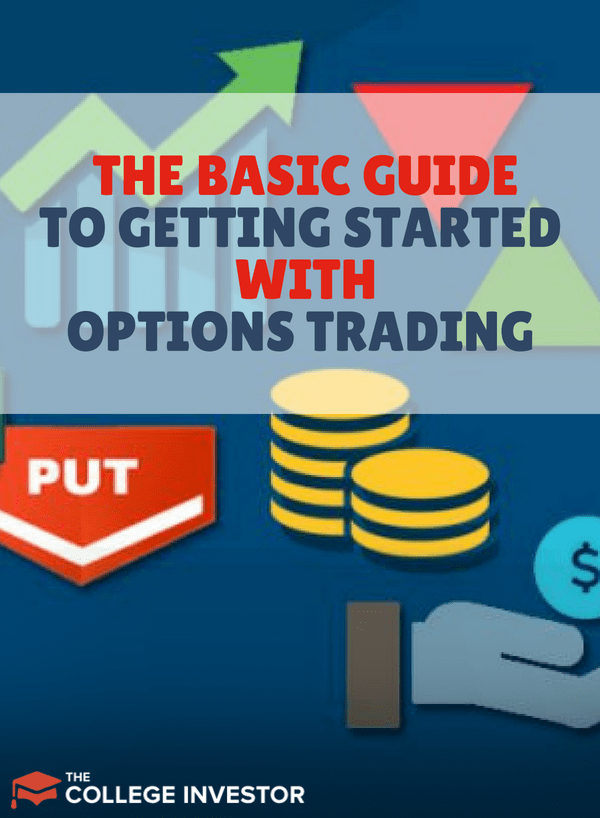
Options trading was once considered a practice best reserved for financial professionals, but it’s become increasingly popular for individual investors over the years.
In 2023, options trading saw a daily average of more than 137 billion contracts, which is a record-breaking number compared to previous years.
New and beginning investors have the potential to benefit from trading options and can use strategies to protect against risk and increase the potential for profit.
If you consider the time value, volatility, and interest rates, you can introduce a lot of flexibility in your investment strategy by trading options.
Before you get started, you’ll need to learn the lingo. Knowing what a strike price is and the difference between call and put options is critical to understanding what you’re getting in to.
Options trading isn’t right for everyone, but it can enhance your portfolio.
To know if it’s right for you, let’s take a look at what options are and how you can use them for trading.
If you just want to start, check out our list of the Best Options Trading Platforms here.
Defining Options, First
At the most basic level, an option is a contract which allows you to buy or sell an investment, such as a stock, an exchange-traded fund (ETF), or other assets.
Each contract includes a pre-negotiated price and an expiration date which specifies how long the price is valid.
There are a few keywords to understand within an option contract, and here’s what you need to know:
- Premium - The price at which you can buy or sell an options contract
- Strike price - The pre-negotiated price of the security if it’s bought or sold according to the option contract
- Expiration - The date and time the contract ends where you no longer have the ability to buy or sell
Instead of directly buying the security, the options contract gives you the opportunity to buy or sell shares or to sell it to another investor.
But you aren’t required to do anything, and you could let the contract expire without having any additional financial obligation.
Usually, an options contract is good for 100 shares, though you can have more than one if you want to trade higher volumes.
For instance, you could have ten options in place if you’re looking to buy or sell 1,000 shares.
What is Options Trading?
Options trading is exactly what it sounds like: trading options. In much the same way you trade stocks and bonds by buying and selling, you can trade options contracts, too.
The difference is that buying options doesn’t give you any ownership in the company because you haven’t purchased any shares.
What your contract does give you is a choice to buy the shares later, meaning you have the potential for ownership according to the terms.
When it comes to options trading, there’s more flexibility in your investment since they can include ETFs, commodities, and indexes in addition to the stocks and bonds you’d expect.
Prices fluctuate, and you can try to predict if the price will go up or down in much the same way that you try to predict stock prices.
Then, you buy or sell your options to increase your profits or lower your risk of loss.
Trading options are broken down into two types. Whether it’s a call option or put option depends on if you want to buy or sell.
- Call option - If you have a call option, you have the right to buy shares at the strike price before the expiration date. Having a call option obligates the current owner of those shares to sell them to you according to the option agreement.
- Put option - Having a put option means you have the right to sell shares at the strike price by the expiration date. If you exercise your put option, the shares must be sold and you’ll collect the strike price for each.
Buying and Selling Options
You pay a premium when buying or selling an options contract.
The price of the premium is a relatively small amount of money that allows you the choice to buy or sell a certain number of shares at a fixed price (the strike price).
It’s similar in practice to how you’d buy stock. Except you’re not buying or selling the shares now, but are paying a premium for the ability to buy or sell in the future.
Depending on your prediction of how the values will change, you can buy or sell call options and put options.
For example, call options can be profitable if you were expecting the underlying asset to go up in value.
Then, you could presumably purchase shares for the strike price, which could be considerably lower than the market price.
But if you think the assets will go down in value, put options might make more sense. Since it gives you the right to sell at a price that’s likely to be higher than the market price, you could cash in on the difference.
Exercising Options
Most options traders tend to make money through buying and selling, but you do have the choice to act upon the terms in the contract. When you do, it’s known as exercising your options.
Options trading has many different strategies, and you can exercise options as part of your investment plan.
Whether you stick to buying and selling or also choose to exercise your options, there is an opportunity for versatility to increase profits and reduce loss.
Why You Should Use Options
Though their reputation is that of a risky investment that’s best left to the experts, options can prove useful to individual investors, too. Having options as part of your investment portfolio can introduce a number of strategic advantages.
Not only do they deliver the potential for higher returns, but they can also hedge against losses.
Options generally require less of a financial commitment than if you bought the asset outright.
That’s because you’re not paying full price to buy shares, but are paying less to for the choice to buy the shares at a later date.
This way, if the market price drops, you only lose the premium you paid to buy the options instead of losing a lot more money if you had bought the shares directly.
But if the market price skyrockets, you’ll have the opportunity to buy the shares at the lower strike price. When that happens, you can cash in by exercising your options or by selling your contract to another investor. Either way, you can profit from the transaction.
How to Start Trading Options
Though it sounds complicated and can include a wide variety of strategic approaches, it’s relatively simple to start options trading.
You need a broker and should compare fees and account minimums to pick one that is affordable and matches your investment style. Check out this guide to the best places to trade options >>
From there, it’s time to develop your options trading strategy. Like most investments, options trading strategies depend on your individual goals and risk tolerance, and can span from simple to quite complex.
Here are three strategies a beginner can use to get started.
The Long Call
When you hold call options expecting the price to rise, the value of the shares can increase beyond the pre-negotiated strike price.
When this happens, the strike price becomes lower than the market price, and you can make money because it appreciates at a faster rate than the underlying security.
The Long Put
If you predict the rate will fall, buying put options can limit your investment loss.
In this instance, your put options give you the right to sell at the strike price which is presumably higher than market price, meaning you might not lose as much money.
The Short Put
The opposite of the long put, the short put is useful if you believe the price will stay the same or rise through the expiration.
This way, the option becomes worthless, and the put seller gets to keep the whole premium.
These are a few of the most simple strategies for trading options, but they could be worth considering if you’re just starting.
After you earn a little profit and are comfortable with these basic strategies, you can introduce more complex tactics. Just make sure you understand your approach and don’t invest more than you can afford to lose.
The Bottom Line
When you begin trading options, you’re buying the right to buy or sell shares of the underlying security.
You don’t have any ownership like you would if you had bought the stock directly, but there is value in having the choice of the options contract.
As with all investments, there is an inherent risk in options trading.
To make a profit, you need the ability to predict whether a share price will rise or fall, and that can require a significant amount of research (and luck).
Once you understand the ins and outs of how it works and find a great broker, there is an excellent investment potential if you implement the right strategies at the right time.

Robert Farrington is America’s Millennial Money Expert® and America’s Student Loan Debt Expert™, and the founder of The College Investor, a personal finance site dedicated to helping millennials escape student loan debt to start investing and building wealth for the future. You can learn more about him on the About Page or on his personal site RobertFarrington.com.
He regularly writes about investing, student loan debt, and general personal finance topics geared toward anyone wanting to earn more, get out of debt, and start building wealth for the future.
He has been quoted in major publications, including the New York Times, Wall Street Journal, Washington Post, ABC, NBC, Today, and more. He is also a regular contributor to Forbes.
Editor: Clint Proctor Reviewed by: Chris Muller
